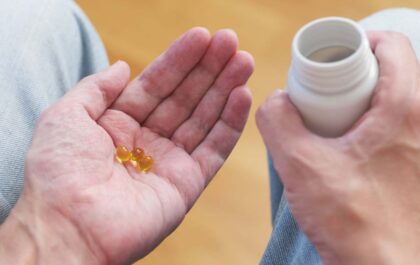Table of Contents
Introduction
Naturopath offers prevention techniques, which is why they build bridges with other disciplines. Therefore, considering consulting a naturopath, it is essential to be well informed before visiting these few expert tips.
The World Health Organization (WHO) defines naturopathy as the general practice of natural health therapies and calls on states to regulate this practice rather than reject it. However, the benefits of naturopathy have not been scientifically proven.
Are You Thinking of Seeing a Naturopath?
The naturopath is good advice regarding awareness of specific problems related to our diet or lifestyle. It can sometimes make us aware of our stress level, fatigue, or lack of physical exercise.
Family physician Greg Chernish, a Chinese medicine and acupuncture specialist, believes that a naturopath should be seen more as a life coach than a health specialist. He adds that it is essential to be careful with prescriptions for a natural supplement or expensive treatment since these can harm more than help in some situations.
Before Consulting A Naturopath, Make Sure They Are Certified
Before consulting a naturopath, ensure they are accredited by the Canadian Association of Naturopathic Doctors (CND). To do this, naturopaths must have completed a four-year program and passed a practical exam. They must also have completed an internship in a clinic.
However, in Quebec, the Northwest Territories and the Maritime provinces, anyone can improvise as a naturopath and practice the trade. Currently, the government has not put legislation prohibiting improvising weight management specialists, for example.
Patients must therefore check for themselves if the professional is certified by contacting the ACDN directly. In addition, in Quebec alone, there are a host of associations of all kinds of naturopaths. That is one of the reasons why it is better to rely on the Canadian association.
Don’t Blindly Trust Supplements Even If They’re Natural
Naturopaths may prescribe herbal or mineral supplements to their patients. Some provinces of Canada can even specify certain pharmaceutical drugs, such as hormones or amino acids. Even if a substance is classified as natural, this does not necessarily mean it is safe.
Medicinal herbs are not subject to the same verification standards as pharmaceutical drugs and may come from factories with different criteria. In some cases, they contain chemical additives or do not contain the number of herbs or supplements promised on the label. “There may be some problems with identifying a substance or contamination with heavy metals or chemicals,” Chernish notes.
Supplements manufactured in factories identified as having Good Manufacturing Practices (GMP) are subject to various standards and independent investigations. You’ll also want to know if the supplements have a Certificate of Analysis, which means the active ingredient has been lab tested and is free of contaminants.
Visit the company’s website or contact them for this information. In the meantime, check out the list of folk home remedies that have proven themselves worldwide.
Talk To Your Doctor About Your Lifestyle Change and the Supplements You Consume
Some natural medicines can interact with the ingredients of pharmaceutical medications, such as the contraceptive pill. It is, therefore, important to tell your family doctor about taking new supplements. Also, it is always good to have a second opinion about a new diet or diet.
Do you often have a headache? Here are the best tips from naturopaths to relieve headaches naturally. Before consulting a naturopath, write down your medical history and the problems you face
The good thing about naturopaths is that they can take time for you. A first appointment lasts about an hour because the naturopath asks questions about your physical, emotional and well-being. You can help direct the conversation by considering why you should see a naturopath. For example, think about what you complain about most about your health and the symptoms that have bothered you over the past year.
Be prepared to answer questions about your medical history. You will also answer questions about your lifestyle, such as your sleep time, your typical diet, and your coffee and alcohol consumption level. You must be as specific as possible if you want the naturopath to provide practical solutions to your problems. While you’re at it, see the multiple benefits of essential oils.
Don’t Let A Naturopath Diagnose Your Condition Without Proper Testing
Some naturopaths diagnose your condition using tests not recognized by the medical community. Greg Chernish points out that some naturopaths diagnose allergies, Lyme disease or adrenal fatigue – a disease that is currently not recognized by all doctors.
Be especially on the lookout if a naturopath makes a diagnosis that requires expensive treatment or long-term supplements and medications. No matter what your naturopath says, if they identify a condition that your doctor didn’t mention, or if your doctor disagrees with your natural treatment, it’s best to rely on their judgment.
Discuss Food and Nutrition
Naturopaths are often better trained in nutrition and digestive problems than a doctor can be, Chernish says. Take advantage of this specialized training and work with your naturopath to find a healthier way to eat. Naturopaths often ask their clients to keep a food diary. So get ahead of the curve by registering everything you eat the week before your first date. However, before consulting a naturopath, ensure you know the seven principles of naturopathy.
Related posts
Featured Posts
Exploring Advanced Techniques in the Laser Engraving Machine: 3D, Texturing, and Multi-Layered Designs
Many industries have spoken for the laser engraving machine because of its results and versatility. But recently, many advancements have…
Benefits of Vitamin D
Introduction One cannot live without the benefits of vitamin D because its virtues are essential for good health. But do…


